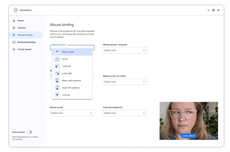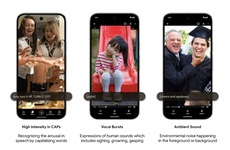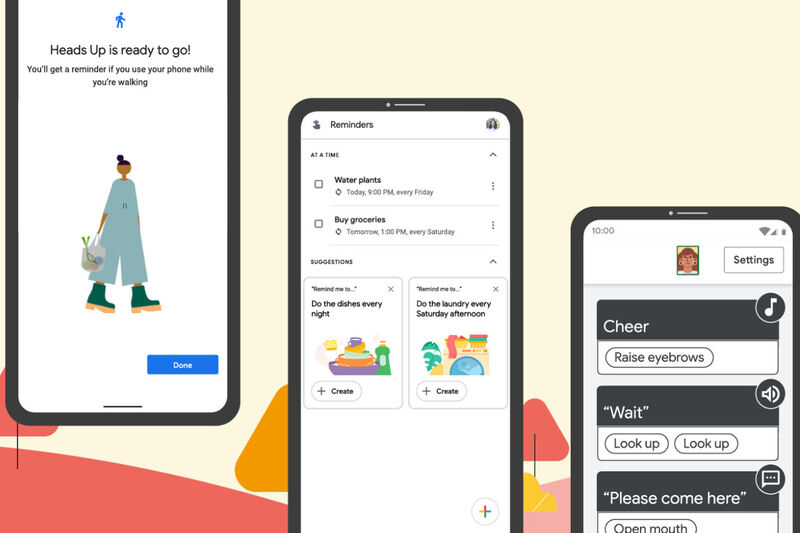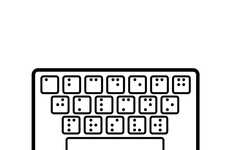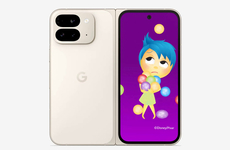
Android Rolls Out Accessibility Tools for the Motor Impaired
Niko Pajkovic — September 28, 2021 — Business
Google has annouced a slew of new features coming to Android this fall, some of which include innovative accessibility features geared towards people with motor impairments as well as those with low vision or blindness.
As part of the update, Android will introduce two new facial gestural controls. 'Camera Switches' will allow users to activate various commands via facial gestures, which can include anything from raising their eyebrows to squinting, to opening their mouths. The second installment is called 'Project Activate,' a separate communication-focused app in which users can make specific facial expressions to trigger actions like texting or playing audio.
In addition, Google has said that a new handwriting recognition tool is on the way. The new tool will be accessible via Documents mode and will be capable of reading Latin-based languages.
Image Credit: Google
As part of the update, Android will introduce two new facial gestural controls. 'Camera Switches' will allow users to activate various commands via facial gestures, which can include anything from raising their eyebrows to squinting, to opening their mouths. The second installment is called 'Project Activate,' a separate communication-focused app in which users can make specific facial expressions to trigger actions like texting or playing audio.
In addition, Google has said that a new handwriting recognition tool is on the way. The new tool will be accessible via Documents mode and will be capable of reading Latin-based languages.
Image Credit: Google
Trend Themes
1. Facial Gesture Controls - The development of facial gesture controls by Android highlights the potential for disruptive innovation in the areas of human-machine interaction, disability assistance and personalized accessibility features.
2. Communication-focused Apps - The introduction of communication-focused apps like 'Project Activate' signifies a new era of adaptive technologies for people with disabilities, creating opportunities for entrepreneurial and startup ventures to explore similar solutions.
3. Handwriting Recognition Tools - The new handwriting recognition tool developed by Google represents a promising trend in the evolution of language translation technologies, with potentially disruptive applications in AI, education and translation services.
Industry Implications
1. Technology - The technology sector stands to benefit from innovations in facial recognition and gesture control technology, particularly in areas such as gaming, virtual and augmented reality, and smart homes.
2. Healthcare - The healthcare industry can potentially utilize facial recognition technology to enhance patient care, through hands-free interaction, remote monitoring and tracking, personalized assistive technologies, and more.
3. Translation Services - The introduction of Google's handwriting recognition tool could revolutionize the translation industry, offering greater accuracy, speed, and cost efficiency in the development of language translation tools and services.
2.8
Score
Popularity
Activity
Freshness

